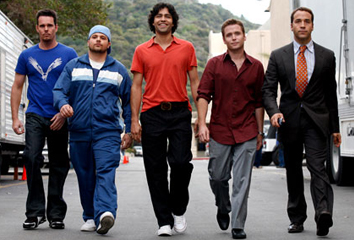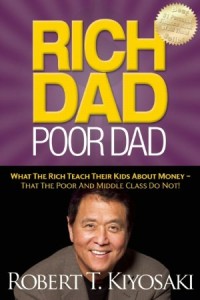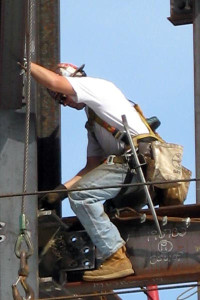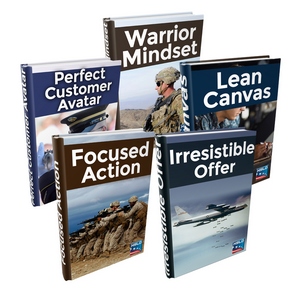
This post is based on the podcast – How Veterans Can Find And Leverage Mentors.
Tom: Hey, everyone. Tom Morkes here alongside Antonio Centeno, co-host of the High Speed Low Drag Podcast and we want to welcome you back to another episode. Antonio, how are you doing?
Antonio: I am doing great. Now, we didn’t mention that guy John Lee Dumas who we say he’s a co-host as well. I mean I get kind of jealous. He’s got his own like little section of this podcast.
Tom: Yeah. He’s the muscle. He does the interviews, but I guess for at least the Thursday sessions I think we’re the co-host and John I guess maybe we should throw him in here as a co-host, but we got to make him show up to some of these then I think.
Antonio: Well, I think that’s a great idea as well and for those of you listening we’ve got some internal documents and so Tom is actually the CEO of High Speed Low Drag. I’m the COO and we’ve identified John as the ammo supplier. That is our classification because he brings in the heavy artillery and some stuff, but he’s in and out. He’s got these crazy things going on. I’m just some boring dad out here in Wisconsin that lives in a small town and, Tom, you are this wandering nomad. It’s an interesting group we’ve got here.
Tom: Yeah. We’ll be doing a podcast and maybe some written materials on how to build out the structure of your business and how to choose names for what people do in a later episode I’m sure.
Antonio: Yeah. We’re going to have fun. We’re going to have a lot of fun with this, but today we want to — we’re basically going to be answering — not really answering any question, but talking about well, as you all know we were in High Speed Elite. That’s our mastermind. We’ve got a great group of veterans in High Speed Elite and we were looking at their pre-survey questions. Some of the things that they said they wanted to get out of the group, why they were doing it and one of the ones that grabbed my attention and this comes over from our buddy, Joe, and Joe runs — he’s former Air Force vet, right?
Because he’s up in Anchorage, Alaska. Now, going back and he runs the website thinkoutsidethewire.com. So you can go check out what Joe’s doing over there and he’s part of High Speed Elite, but he said that he was going to join or one of the reasons he joined our mastermind is he wanted access to mentorship specifically one-on-one mentorship.
So you realize, okay, here’s a few guys who are a bit ahead of me. I want to get out there. I want to get my business to a minimum of $10,000 study a month. I want to make a difference. I want to have an impact. I want to help other vets. I want to just be proud of what I do. I want to have it sustainable in the sense of it’s got a steady passive income source.
And one of the things I recognize how they get there is one-on-one mentorship. Tom, what do you think? Do you think he’s on the right path?
Tom: Yeah, I definitely think so. I mean, well, first and foremost the fact that he was actively seeking out people to connect with and reach out to myself, you, Antonio and John and then ultimately joined High Speed Elite. I think that speaks for itself. So somebody who’s actually seeking and searching for that kind of mentorship and then yeah the fact that it’s combined with action because he’s already built thinkoutsidethewire.com.
He’s building it. So at least the outline, the structure is there and now the question is how does he build this into a business that creates sustainable cash flow. But I think a big part of that is finding the right mentors to guide him through that process.
Antonio: Yeah. And it’s funny. I go back and look at the history of my conversations with Joe and actually we’ve been talking for months and I think it’s the same with John. I don’t know if he was talking with you before we even launched High Speed Elite. And so he’s out there he’s trying to find the right mentor and that’s something we’re going to be talking about today.
In a sense, how do you find the right mentor? I’m going to share my personal story of how the right mentor helped get me in a better position when I was in the Marine Corps and how it’s something to a lot of us when we get out we forget that we had that camaraderie. I mean one of the great things that and I know a lot of us miss even if you didn’t have the best MOS or you maybe didn’t enjoy being deployed all the time.
 But one thing I know almost all of us miss is the camaraderie. The way that you were surrounded by people who had your back, who literally I mean would bend over, would give you the shirt off their back. They would step in front — they would take a bullet for you. I mean to be surrounded by those kind of people so many of us miss.
But one thing I know almost all of us miss is the camaraderie. The way that you were surrounded by people who had your back, who literally I mean would bend over, would give you the shirt off their back. They would step in front — they would take a bullet for you. I mean to be surrounded by those kind of people so many of us miss.
And what maybe we didn’t realize is while we were active duty, while we were in the reserves it was something that we were surrounded by amazing mentors and some of these are actually forced mentorships when you think about that. I mean my example is kind of a forced mentorship. The executive officer of the battalion, I was the adjutant. So I reported to him and to the commanding officer and I remember the commanding officer it was I knew about this.
It was like, hey, I want you to work on getting the edge, getting him a bit more up to speed because I just come in from the wing. But Tom, did you have any amazing mentorships, I’m curious, while you were active duty?
Tom: Yeah. Well, I suppose for active duty the most profound one was actually the first unit I went to and my company commander in that unit who probably I think stood up for me more than most because I’m kind of a person who I think catalyzes groups and so you either love me or hate me. But he was always supportive, backed me up especially when we went down range for deployment.
When I volunteered to do the combo security he was all about that. So he was actually — he had done — what was it called, the term, man. It was like a quick reaction force and I think there was QRP or something like that. I forget now. It’s been so long. But that’s what he had done at deployment prior. So he had all that experience. So he kind of mentored me while I set up the combo security platoon and while a slightly different mission. It wasn’t just a quick reaction force that’s a QRF.
So while we were at the QRF we had to be able to do that mission, but our thing was just combo security. So he kind of definitely like — there’s definitely no hand-holding at all, but he was there to support me and just to check on things and how I was training the guys and how I was setting up the systems and processes that we would use and setting up out TTPs.
And so he was always there kind of like anytime I need him, but also just kind of giving me that guidance. So yeah, I thought that was pretty crucial to my success while I was over there in Iraq.
Antonio: You know, Tom, I just have to ask this as a marine. The Army and the word “quick” it just threw me around, but no. Great story and I also don’t want to or I want to bring up the fact that another mentor who I just thought of was actually my staff sergeant. And I think John actually he’s shared his story with us, but often times it’s not about rank.
You’ve got find mentors sometimes people that are actually in a position which yeah technically I outrank them, but you know what this person has ten years on me and is an amazing. I mean my staff sergeant in the S1 this guy was brought in specifically by the commanding officer. He knew him when he was eight. Lance corporal, corporal and then sergeant and he’d watch this guy progress very quickly and Staff Sergeant Garcia I mean to this day I look at — he had four kids at the time and I was a single marine lieutenant.
So I didn’t even think about kids, but I mean the guy was always the first one there. He really put his heart and soul into it and not only that he was smart. He knew the way things had to work and he was very — he realized, okay, you can’t go, you can’t tell your lieutenant what to do, but you can give him a bit of guidance almost make it seem like it was his idea and get him over there because he’s going you know.
You’re stuck in these relationships that you have to work together. There is no other option. I mean the system is set up and you’ve got to find a way to make it work.
Tom: Yeah, absolutely. And I echo the sentiment. I mean I definitely had some great platoon sergeants and my fist sergeant was also great when I became a company commander and really through the whole process I got to work with some just incredible people at every rank.
Antonio: Yeah, I remember going to my sergeant major and I felt, you know, I was a little bit embarrassed, but I’m like, “You know, sergeant major,” because we were doing a change of command and when you do a change of command the adjutant actually is one of the guys out there barking orders. I always considered myself a bit of an introvert and I had no idea how to bark and yell the way that you need to when you’re out there.
And I didn’t want to make a fool of myself and I think one of the things I definitely learned is to swallow my pride, to approach people who have experience being a drill instructor and I said, “Sergeant major, I don’t want to make a fool of myself. Can I get help with this?” And you know he took time out of his schedule. He made sure to bring me out there.
He had me and I felt I did a great job for that change of command because of the mentorship and the one-on-one coaching that I mean, yeah, I could have possibly tried to do it myself, but when you have someone there that’s immediately able to see where you’re making mistake, point you in the right direction that one-on-one coaching, that one-on-one mentorship can allow you in a very short amount of time to make huge leaps, to have huge, huge jumps and improvement.
 Tom: Absolutely. So I want to get into this and in particular how do you actually in the military I won’t say it’s easy to find a mentor. It’s certainly not, but you’re obviously surrounded by people all the time, again, whether up and down the chain of commands and you definitely have access to obviously everybody who’s working alongside with you and with you. And so I almost want to say that it is kind of easy to find a mentor in that you guys are all doing the same thing, but how about I guess my question would be how do you find a mentor within the military, but also outside of it?
Tom: Absolutely. So I want to get into this and in particular how do you actually in the military I won’t say it’s easy to find a mentor. It’s certainly not, but you’re obviously surrounded by people all the time, again, whether up and down the chain of commands and you definitely have access to obviously everybody who’s working alongside with you and with you. And so I almost want to say that it is kind of easy to find a mentor in that you guys are all doing the same thing, but how about I guess my question would be how do you find a mentor within the military, but also outside of it?
Like especially for these veterans who might be getting out of the service right now or who have gotten out and are going to the business world or something like that. How do you find a mentor when normally in the military, again, like I said you’re surrounded by it. When you actually leave then what do you do? How do you find a mentor?
Antonio: I would say one of the first things you have to look at is kind of have an idea of what you want and what you’re looking for and you realize that just because someone’s strong in one thing doesn’t mean they’re going to be able to be a full all around mentor. So it’s okay to see a guy perhaps out there. Maybe you’ve got a brother-in-law or you have a sister-in-law, someone that is just killing it in sales.
And you know that, okay, I have no experience in this, never had to sell anything. Maybe you had a summer selling Cadco knives before you joined up. But I mean really you’ve never sold anything in your life, but you realize that when you look at all the jobs out there or you’re seeing that most of them require an ability to sell and I think that selling actually is an incredible under taught skill that every person going out there whether starting a business or going into corporate should have.
So being able to swallow their pride and say, you know, I would like to learn a bit about this and be able to do sales the right way and to be able to approach them to realize that they have a strength in this to get interested to ask them. So another great place to start is to do some reading, pick up some books, audio books, start learning about business so that you can know what to ask for and just start to open your mind to the various aspects that there are out there in a way that you’re not going to feel foolish.
When you’re listening to an audio book or you’re reading a book obviously it’s one way you’re learning. But by doing this you’re expanding your vocabulary. You’re learning what is a CRM system if you don’t know what that is. And again, we use tons of acronyms in the military. They use the same stuff in the civilian world, but if you understand that terminology or you’ve read it at least you’re somewhat familiar with it.
So when you go speak with your brother-in-law and he starts talking about, “Well, I use the CRM system.” You’re like, “Okay, wait a minute that’s content or customer relationship management system.” He’s like, “Yeah, you got it.” And then you’re also sending him a signal that you need to go Barney style with me because I’m just starting here. But yeah, know where you want to go or you’ll wind up somewhere else.
Tom: Exactly. Yeah. I echo that because I think especially in the books thing when I was starting out I definitely didn’t I guess maybe being more of an introvert I didn’t reach out to people so much as I stayed back a little bit, but I read a lot of books. I followed people online and stuff like that. Not stalker style, but I followed their work and I read a lot of them.
 So guys like Seth Godin and Robert Kiyosaki of Rich Dad Poor Dad when I started investing in real estate. So reading those books it was almost like it was the closest you could get to some of these people to become a mentee almost, to learn from them. And then beyond that though what I found and this is kind of more of a mentorship hack. It’s kind of what I did with you and John, Antonio, to be honest with you guys because I consider both of you mentors in the space of online business.
So guys like Seth Godin and Robert Kiyosaki of Rich Dad Poor Dad when I started investing in real estate. So reading those books it was almost like it was the closest you could get to some of these people to become a mentee almost, to learn from them. And then beyond that though what I found and this is kind of more of a mentorship hack. It’s kind of what I did with you and John, Antonio, to be honest with you guys because I consider both of you mentors in the space of online business.
And the ability then to reach out to you guys, connect and then what I consider a hack is getting to work alongside you guys because that’s where I’m able to learn the most and grow the most. So I think if anybody’s listening that the fastest way I think to grow is to not just approach it as you’re going to be listening and kind of connecting people that way, but that you’ll have the opportunity to actually work alongside them if you can. I think that’s an incredible opportunity.
Antonio: So two things, Tom. First, I think when military guys are actually we’re not really stalking. What we’re looking is we’re looking at the person through a sniper scope and we’re just kind of following them along and waiting to pull the trigger. That sounds a bit I think a bit cooler. So I won’t use the stalking term.
And the other point is I completely agree. Whenever I want to get to know somebody a bit better I don’t have time just to meet someone and have coffee. I find that doesn’t really lead anywhere and I live in a small town. I don’t have time to chitchat for an hour about you know. When it comes down to it I’ve got my fourth kid on the way. I like to spend time with my wife.
I’ve got multiple businesses. I’m a busy guy and I like to live my life on my own terms. But if you want to build a really strong mentorship one way is to think, how can I add value? Maybe you’ve got a lot of piss and vinegar and hey, you’re ready to go through your hard charging. You don’t know necessarily what you’re doing, but that is valuable especially to other business owners who in a sense don’t necessarily have the expertise or the time.
However, they can provide a bit of guidance. I meant they do have the expertise. They just don’t have the time and they can provide the guidance, but they need somebody in there who is a critical thinker, who is smart, who isn’t going to give up and is going to give 110% and that combination right there allows you to come together and work on a project together to get to know each other better while working on this project and actually produce something of value.
I mean what we’re doing here at High Speed Low Drag we could walk away from it right now. And there is enough content, there’s enough there that we’re still going to help thousands and thousands of people. Now, we’ve got plans to help millions and millions of people. That’s what we’re going to be doing. We have a video series. You’ve already seen some of the videos we’re putting out, Tom, some of the early looks of it.
And so we’ve got a video series that’s coming out. We’ve got a lot more podcast that we’ll be producing and we’re working on this mastermind also with courses that will be basically self-study courses that will be at a lower price point so that whether you’re an E3 getting out or you’re an O2 that’s getting a medical discharge if you’re really short on cash, hey, you still will be able to grab one of these courses or of course just go through any of our content that we make freely available.
 Tom: That’s great. And on that note too, I think the aspect of kind of bringing that hustle to the table even if you don’t have like more applicable skills, but you come with that sense of, “Okay, maybe I don’t have the expertise, but I’m willing to put in the time and effort and I’m willing to learn.” And if you’re motivated by that and you’re motivated to do that I think that is an asset.
Tom: That’s great. And on that note too, I think the aspect of kind of bringing that hustle to the table even if you don’t have like more applicable skills, but you come with that sense of, “Okay, maybe I don’t have the expertise, but I’m willing to put in the time and effort and I’m willing to learn.” And if you’re motivated by that and you’re motivated to do that I think that is an asset.
I like to think that that’s what I brought to the table in the beginning when I first started my own stuff and tried to start working with guys like you, Antonio, and John and say, “Well, my experience is limited right now, but I can put in the time and effort and I’m willing to learn and grow and become better than I am right now and if I can do that then I can be a value add in some way, shape or form.”
Antonio: Yeah. There are tons of courses out there in which are very specific to little skills you need. The example is probably Facebook ads. We needed to get some Facebook ads going there isn’t like you took a Facebook ads class at West Point. It just wasn’t there. In fact, there isn’t probably a university out there that actually has a class on Facebook ads.
It changes so fast. However, there are little courses that you can take where you have the one with Rick Moretti. Amy Porterfield has one and all of a sudden you can take that and within a period of literally hours you are getting started. You’re making it happen. You’re learning via experience and boom you made it happen.
Tom: Yeah. And that was a good example of in my perspective being able to dive into something like that completely foreign to me. I had messed with Facebook ads a little bit before. So I understood the ads and things like that, but it’s a whole different ball game when you jump into that knowing, okay, there’s bunch of constraints here. We’re looking for return on investment here when there’s a real product or service we’re trying to offer and bring in the context of business.
And there’s no better learning curve than that either. Like yeah, it’s kind of jump into the deep end, but in my opinion that’s how I like to learn best and I learned a ton from it and now it’s I feel very comfortable doing Facebook ads. So just one example of becoming kind of rapid learning I think that’s a great way to go about it.
But to segue this into the mentorship again to bring it back around what do you think, Antonio, in your opinion is enough time to spend with a mentor because and here’s the reason I ask this. As I wonder if some people are seeking out mentors thinking that’ll be the panacea to their problems or that’ll be the complete fix to whatever problems they’re having in their business for example.
And I think they come in with a conception that if I can get a mentor tell me what to do in every situation and then possibly that like everything will be cured. So tell me about that. What are your perspectives are on how much time is appropriate to spend with a mentor as the mentee and vice-versa and how that relationship out to look? Like what’s the most effective way to actually use it?
 Antonio: Well, I’ve heard of relationships going on for decades. So it’s something that can go on for a long period of time. However, when I’m looking at a mentorship or if I’m going to be working with someone I like to set up a smaller amount of time so that, one, when you have an end date and six months, three months, a year. Don’t really go beyond a year. That’s hard to conceptualize, but the cool part about keeping it short like that is often times the sweetest things in life have an end date.
Antonio: Well, I’ve heard of relationships going on for decades. So it’s something that can go on for a long period of time. However, when I’m looking at a mentorship or if I’m going to be working with someone I like to set up a smaller amount of time so that, one, when you have an end date and six months, three months, a year. Don’t really go beyond a year. That’s hard to conceptualize, but the cool part about keeping it short like that is often times the sweetest things in life have an end date.
There’s a natural end to it. And if the mentorship isn’t working out the way you want you’ve got an exit strategy because you can always continue it. You can always decide to move it on. When some of the things that I think that happens as you get a bad mentorship or it’s not what you expected, but yet one person really enjoys it. The other person doesn’t and then it just keeps going on and on and on and then actually then turns into kind of a negative relationship because you’re just not getting return on investment.
You’re dreading going to it. So make sure you try to set that end date because some mentorship you know people only meeting once a month. Other times you’ve got it so that they’re talking multiple times a week. So that’s also going to have an effect on how much you’re going to get. Don’t expect this person to come in and I mean this is a — if you’re going to be especially if you’re the mentor don’t expect this person to spend a whole lot of time getting up to speed.
I mean they probably if they’re a good one they’re going to look at what you’ve already got started. They’re going to talk to you, ask some probing questions, but it will take a while for them really to get an idea of what it is you’re trying to do and where you’re headed, so all of that kind of plays into how much time you’re meeting.
I would recommend having an end date that again compartmentalizes it and allows you to have an exit strategy. Let me think, yeah, so structuring it that way. Before we move on too far though I did quickly want to talk about seeking out mentorships, don’t be afraid. You know one thing I really respected about what Joe did is he reached out despite I mean he just used the veteran connection.
He pointed out, “Hey, I’m transitioning out. I’ve got this going on.” And we’ve talked about this in other podcast. If you see someone you’ve got a special, you’ve got a veteran card and that gives you access to people who many other people will not have access to because you can say simply, “Hey, I’m getting out of the Army. I’m getting out of the Air Force. I’m transitioning out of the Navy and I would like to spend some time just talking with you to learn so I can make I’m on the right path.”
Very few vets are not going, I mean it’s only the ones at the highest echelons that and you’d be surprised who were guys that are veterans out there. I mean Drew Carry was in the United States Marine Corps. Now, I’m not saying that you can set up time to talk with Drew Carry, but if you ever need him or if you ever are in the entertainment industry and you’ve been making your way up it probably would be something that you possibly may be able to get ushered to the front with somebody like that because you actually have that connection, something that not many people do.
And it’s again it’s something don’t be afraid to use. It’s one thing I thought Joe did a really good job is identifying who you wanted to speak with. You realize they were veterans and you use that card in order to usher themselves up to the front.
Tom: Yeah, absolutely. And I guess as an extension to kind of going outside the veteran network as well you can use some of the stuff to get people as mentors who aren’t veterans although I mean and great stories with that. Yeah, I mean, well, I mean this I feel like I’ve definitely been able to connect with a lot of great people that a course last year or two and, but I actually I want to bring up not my story, but John’s because I thought it always kind of crappy.
I mean now that she’s a mentor of his, but one he was doing the Entrepreneur on Fire podcast and he was kind of getting his first few interviewees lined up. And when he reached out to I think it was Barbara Corcoran and he basically played the veteran card to get her on the show. I thought that was a pretty cool story.
And again, not to and that was just for an interview. I don’t think anything became of that, but I think the power is reaching out to people and kind of being specific of what your intentions are too and that I think is immediately applicable if you’re trying to seek out a mentor to let that person know that that’s kind of the purpose of what you’re looking for.
 And again but I think not just saying, “This is what I want from you” because that’s kind of a turn off I think, but saying, “Is there any way I can do some work for you or anything I can help you build.” And I think even that is almost too vague. I’d say specifically the best way to reach out to people that you might respect or admire and want to learn from is to reach out with a specific plan for something that’ll improve whatever they’re doing. So my case I did that with book publishing.
And again but I think not just saying, “This is what I want from you” because that’s kind of a turn off I think, but saying, “Is there any way I can do some work for you or anything I can help you build.” And I think even that is almost too vague. I’d say specifically the best way to reach out to people that you might respect or admire and want to learn from is to reach out with a specific plan for something that’ll improve whatever they’re doing. So my case I did that with book publishing.
So I reached out to some of the people that I publish now are people that I truly admire. I mean really I don’t work with anybody I don’t admire. That’s just rule number one for me. It’s just not worth my time. I want to work with people that I truly do admire.
And so when I first started doing that I reached out to the people who I looked up and I said, “Hey.” For example Jonathan Mead Paid to Exist. I was like, “Hey, I love your blog platform. You have some great content. I’d love to publish a book with you. Here’s what I can bring to the table.” And I had no real track record at that time, but putting out there and being very specific about my intentions now got me the opportunity to work with him and I’m working with him for future publications now, future books and things like that.
So it’s just kind of cool how one thing has led to another and that that’s kind of more a business relationship kind of thing. But for me it was very much kind of just a way to be mentored and see kind of what, how does this guy operate inside in a system, how does he what he do or how does he do what he does and can I learn from that while providing value.
Antonio: I think you hit on a great point, Tom, which is the people that you most want to mentor with are going to be some of the busiest people out there. They are not going to have time for chitchat and just allowing you to pick their brain. I think Seth Godin talked about this. When people say they want to pick his brain he’s like, “No, my brain is valuable. Like you cannot — I mean that even sounds horrible. I mean literally you picking up my brain. No. Stay away.”
And a lot of us at this level in business I mean it’s just our time is our most valuable resource. So if you actually contact me and you are going to show me how you’re going to free up time you’re going to add value. Oh, and the only catch is you simply just want to get to know me better and you’re very clear about that. Don’t be afraid to — hey, there are no strings here.
I simply respect what you’re doing. I realize time is your most valuable resource, but yet I’ve noticed you’ve got this glaring problem that you’re not putting out content on this platform. Well, how about I come in and I just help you build this up and we do this within a three month period and the goals would be for us to have this. Oh, and I’m doing this at no cost which is one of the advantages if you’re getting started and you haven’t transitioned out because you’re still getting your paycheck from Uncle Sam and you may be finding that you’ve got a little bit more time because you’re transitioning out.
Well, take advantage of that. Don’t spend your free time. You know as much I used to love riding my motorcycle and I rode a lot, but if you’re free and if you’re using all your free time just to dilly-dally around and not actually build for the future I think that’s a mistake. Now, enjoy yourself, take a vacation, have some fun, but at the same time, yeah, be building for the future.
Tom: Yeah, absolutely. And on that note too I think that there’s almost I would say limitless. Obviously you can’t really quantify that, but I’d say there are limitless opportunities out there to find people that you respect or admire and to find things that and again if you respect and admire them you probably kind of understand what it is they do and things that they work on because you pay attention to what they’re creating.
And then to look at it and say and find ways that you can potentially improve their platform in some way shape or form. And that’s literally how I went about it with book publishing, but that’s just one aspect of it. I think there’s probably a hundred of ways I could have approached all these different people that I’ve since had the opportunity now to connect with and build relationships with to look at their platforms and say, “Okay, how can I help this person? What can I pitch to them in ways that I can help them?”
Again, with the important part there it’s like I’m coming there with the perspective of how do I add value to this platform? And there are literally so many opportunities to do that. Every person’s business like you said time is the most important thing for so many of these people that are business owners. They’re very busy.
And so while they would like to do a lot of different things with their business they’re just too busy. So if somebody comes in and says, “Hey, I’d love to do this for you. I’d love to build this for you. I’ll put all the time and effort in to make this happen, et cetera, et cetera.” That’s like a proposition.
If you’re legit about it and legitimate it’s a great proposition that they can almost not pass down in many cases. So just I think that’s an important thing to take note of as well.
 Antonio: There’s a writer T.S. Elliot and in one of his poem I think it’s Little Gidding where he talks about the reason we go out and we travel the world is so we can come back home to look at our home with new eyes and see things differently. So as you’re out there and you’re educating yourself, you’re reading this look around you. I mean you may be stationed in Southern California and I mean In-N-Out Burger, amazing place.
Antonio: There’s a writer T.S. Elliot and in one of his poem I think it’s Little Gidding where he talks about the reason we go out and we travel the world is so we can come back home to look at our home with new eyes and see things differently. So as you’re out there and you’re educating yourself, you’re reading this look around you. I mean you may be stationed in Southern California and I mean In-N-Out Burger, amazing place.
You know maybe talk with one of the managers about In-N-Out programing. It’s something very — I think it happens very rarely that the manager — go to an off time when they’re not super packed which is pretty rare. But ask him how do you guys pack this place? And like just hear the philosophy. Something as simple as — you know these are things we see every day, but why is In-N-Out Burger why does it work? What about that secret menu that they have? Why is it that people literally when they fly in to the airport ask cab drivers to take them to In-N-Out?
And to actually hear it from an insider and to hear their stories and think you know I’m not wanting to get into the fast-food industry, but if I can create a cult following or an insider like little list or like little tribe that’s what In-N-Out has created if you think about their success and how they’ve been able to compete with McDonalds and all the other more established brands that have more of a national or world-wide presence is they use that to their advantage.
So there are lessons everywhere. Simply walk down the street. I mean here in my town of 1,000 people, 1,113. I like to be specific. We’ve got Nueske Meats and Bob Nueske — this company has been around for almost 80 years, over 80 years. And how have they been able to compete in the smoked meats area and it’s simply because they focused on being the best.
I mean it’s an amazing story. It’s right here in my town of 1,000 people. So no matter where you live, no matter where you’re at you’re surrounded by amazing mentors. So don’t think you just have to search online. You’ve probably got some local ones as well.
Tom: That’s great honestly and I think that is probably the last thing we need to cover when it comes to mentors. I think you hit the nail on the head there and I guess I would just to kind of reflect on some of the things that we talked about here is that mentorship is important and it’s up to you if you are looking for a mentor to reach out to people from a value-based standpoint, see where you can add value, but also look around you like Antonio just said and look for all the opportunities that are around you that we kind of ignore because they seem to be almost like ever present.
It’s like that the things that are hidden, but that are in plain sight and there are again millions of opportunities like that to reach out, connect to people and to learn from them. And again I think taking it back, if there’s some way that you can add value that’s going to really improve your relationship and make things a lot better for you, for your learning and for the impact that you’re going to create.
And then just for that relationship that you’re creating with the mentor. Anything else to add, Antonio?
Antonio: I always think a podcast can be made — you know the cherry on top is always going to be simplify. You know just. It’s really cool. Thank you guys so much for being out there and for listening and for going over to iTunes and leaving us reviews, sharing this with your friends.
I was just talking to my little brother the other day. He’s in the area for EOD Army and for him to be listening to this and giving me what his thoughts are and sharing it with his friend. I mean this is how it grows and guys, so if you know anyone transitioning out, any vets that have been out for a few years and need a bit of help or guidance or need inspiration. We’re here for you and we really appreciate.
Feel free to reach out to us. You’ve got the contact form at High Speed Low Drag and that’s it, Tom.
Tom: Guys, see you on the show next week.
Antonio: Take care.
Veterans, your education doesn’t stop here. Go to highspeedelite.com to join the exclusive veterans mastermind that will give you the unfair advantage to succeed in both business and life. We have dozens of training courses, HD videos, a private Facebook group, and the chance to interact daily with John and other successful veteran entrepreneurs every month on live hangouts and webinars.
High Speed Elite is more than a mastermind. It’s your ticket to the land of success.
Are you prepared to ignite? Go to highspeedelite.com today to find out more.
